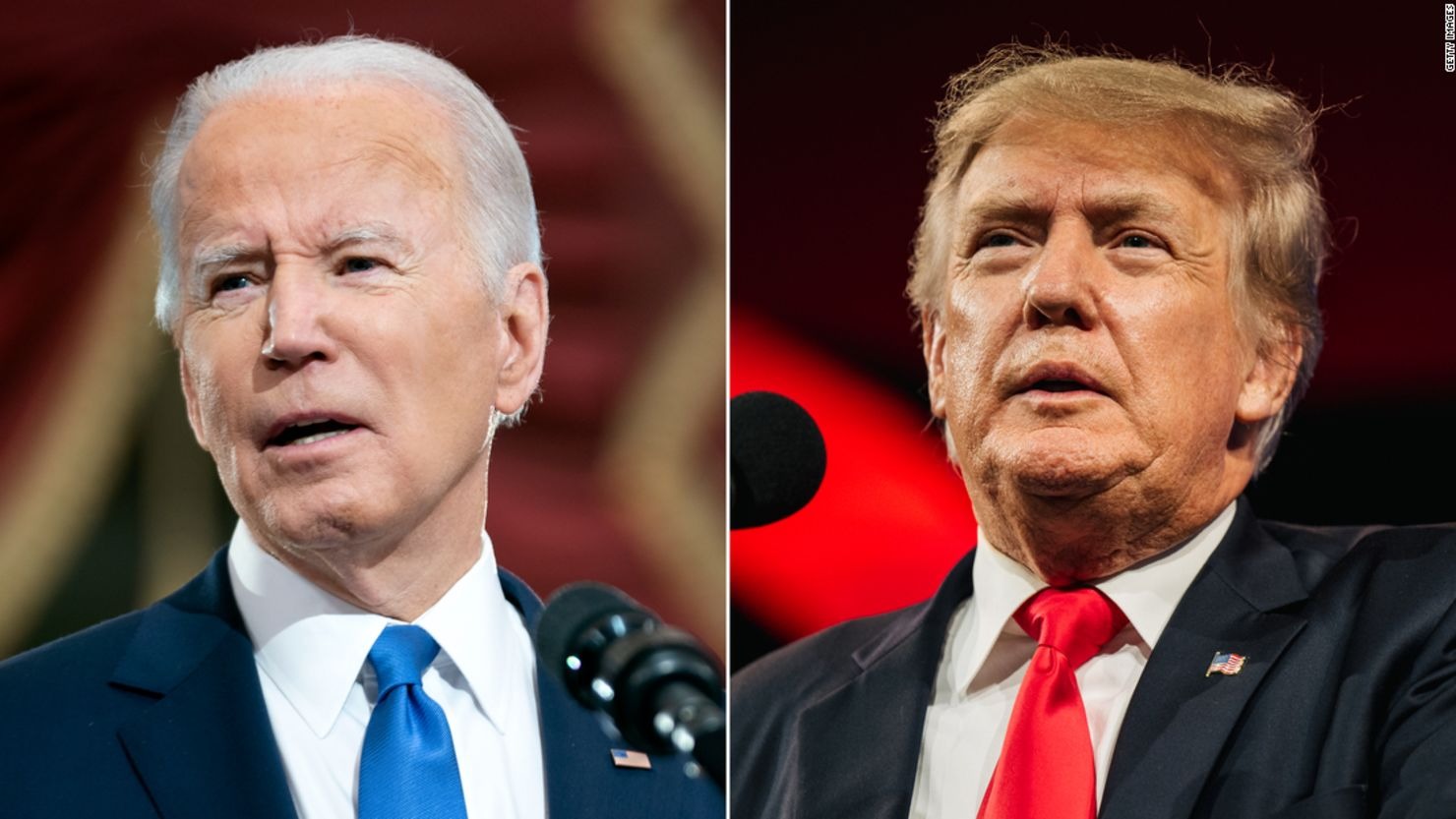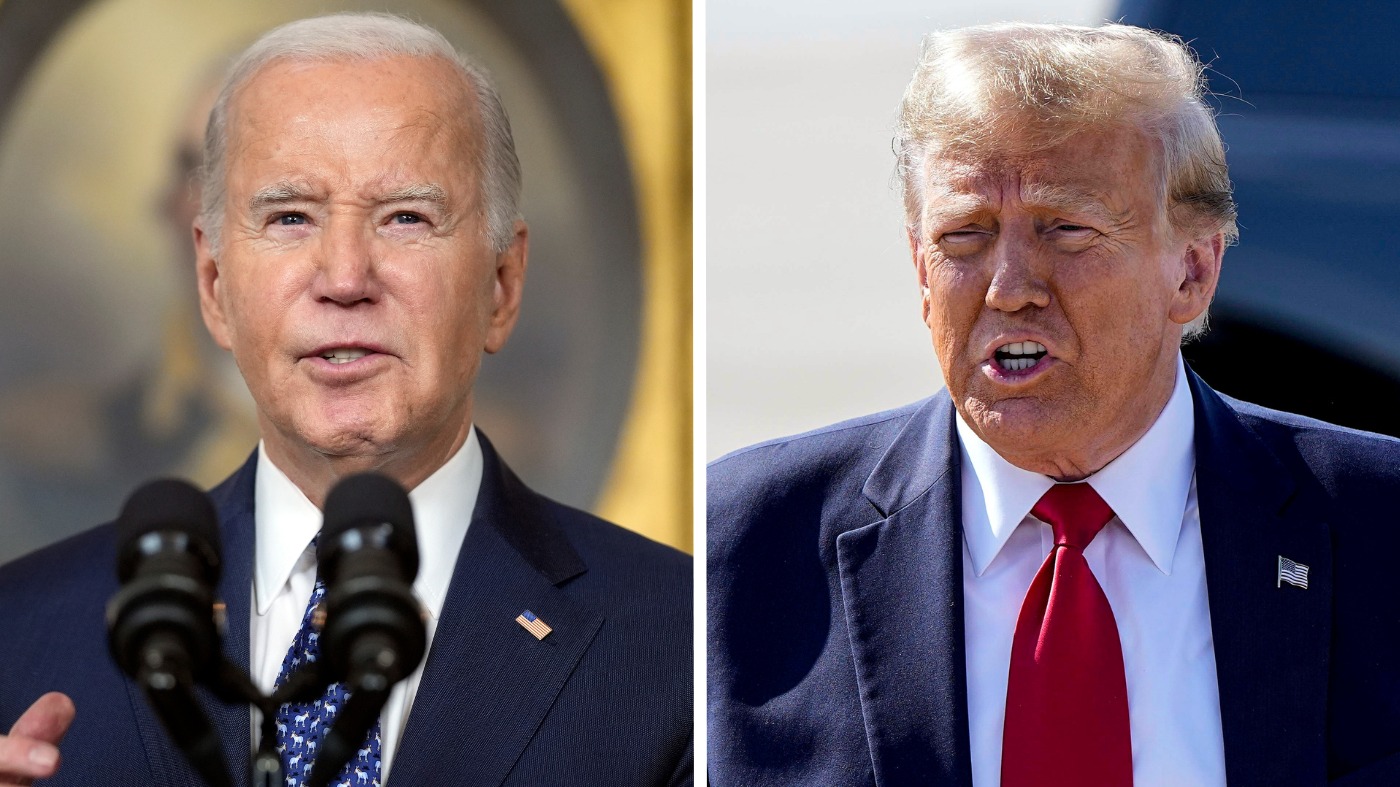President Biden and former President Trump have both secured their parties’ nominations for the 2024 presidential election, setting the stage for a rematch between the two candidates. Biden reached the required number of delegates for the Democratic nomination, while Trump secured the Republican nomination.
Biden issued a statement criticizing Trump’s presidency, calling it a “campaign of resentment, revenge, and retribution.” He emphasized the choice voters face in the upcoming election, framing it as a decision about defending democracy and protecting freedoms.

Trump, in a video message, focused on defeating Biden, whom he labeled the “worst” president in US history. He reiterated his campaign promises, including plans to boost the economy and tighten border security.
The outcome of the primary contests was largely expected, with Trump’s last remaining rival, Nikki Haley, ending her campaign after Trump’s strong performance on Super Tuesday.
Biden faced minimal opposition in the Democratic primary, although some liberal activists protested his support for Israel’s war in Gaza by voting “uncommitted.”

Both candidates have shifted their focus to the general election, holding rallies in Georgia. Trump repeated false claims about the 2020 election and criticized Biden’s handling of the southern border. Biden’s campaign announced a $30 million ad buy and raised $10 million after his State of the Union speech.
Despite the candidates’ efforts, voter enthusiasm for the rematch appears low, with polls showing both Biden and Trump are unpopular with the majority of voters.
Trump’s legal troubles, including 91 felony counts across four indictments, could impact his standing among key voter groups. Biden, on the other hand, faces criticism over his age and handling of the economy and the border crisis.
As the campaign unfolds, key issues such as the economy, border security, and the candidates’ personal attributes will likely shape voter perceptions and the eventual outcome of the election.


